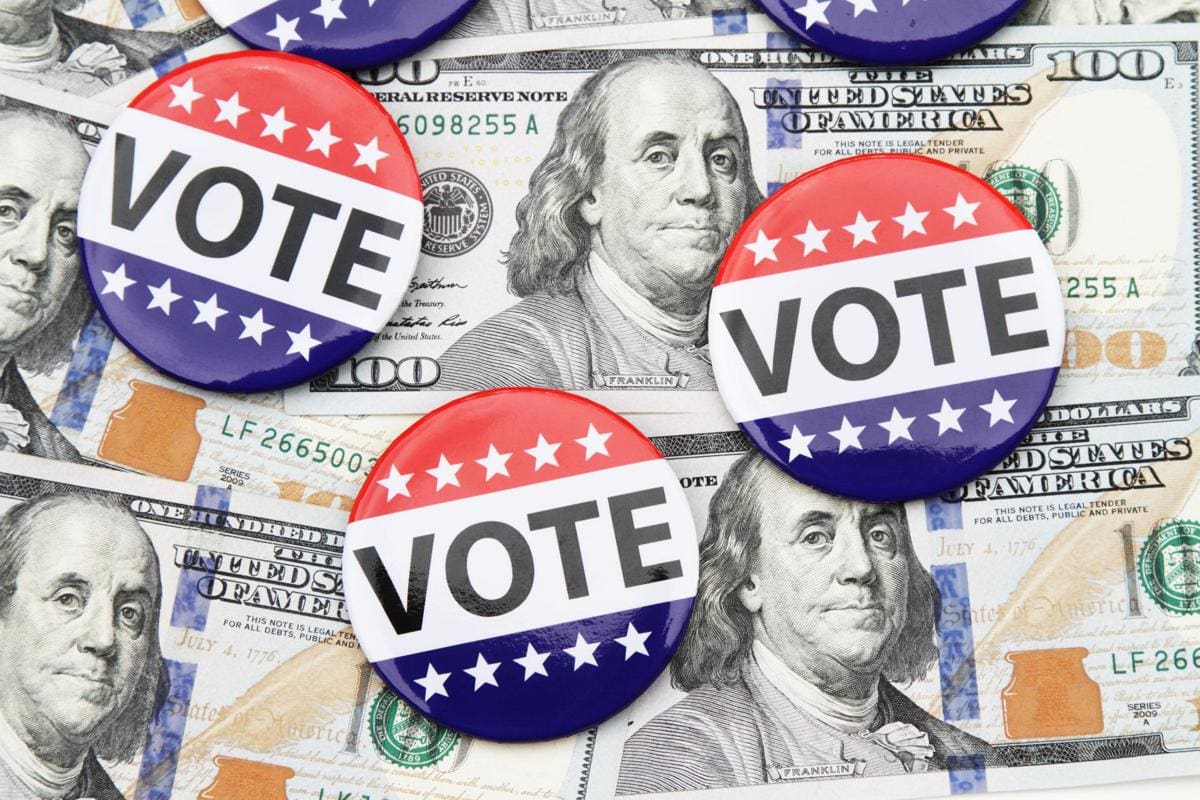Individual taxpayers are often placed at a disadvantage when it comes to weighing in on state and local policy decisions. Perhaps it’s because, in addition to single-digit voter turnout, big government programs often target a minority of beneficiaries at the expense of the average family or business.
But there’s also a bait and switch game being played by local officials, who have little incentive to tell the whole truth.
We can see this happening in local bond elections, where hundreds of millions of dollars are approved in elections with five percent voter turnout. And after a year of engaging local officials, I was both surprised and encouraged at the response.
We’ve received scathing criticism from local officials for simply sharing the information published by the State Comptroller regarding Texas’ local debt epidemic.
Perhaps it’s because local boards lording over their fiefdoms aren’t used to genuine opposition, especially from their subjects. Nor are they used to anyone with a microphone loud enough to tell voters the whole truth. For example, they fail to convey the actual costs of bonds to voters, by excluding any discussion of interest expense.
In Frisco ISD, voters will only see a $775 million proposal on the ballot, even though the Texas Public Policy Foundation has projected the total cost to potentially exceed $1.3 billion. The interest expense was also absent from Arlington ISD’s public presentations, although they quietly confirmed the figures with the Arlington Voice.
An Arlington resident, Richard Weber, who said he attended almost all of the Capital Needs Steering Committee meetings, was surprised to learn about the interest expense. “I don’t recall them ever stating how much in total interest would be paid,” Weber said. “It’s like they don’t want people to know about it.”
Rhetoric from the “fief’ overseers also exaggerate the severity of their district’s financial needs. In Frisco, they claim that, if voters reject the May bond, their schools will overcrowd like Noah’s Ark.
Of course, that’s a false choice intended to intimidate voters into submission.
If rejected, the board will simply reevaluate the plan, resubmit a smaller package, and be forced to justify it to voters…How radical?
With bond and tax ratification elections (TREs), local governments are also prohibited from using taxpayer dollars to advocate a “yes” or “no” vote on the measure.
But that doesn’t stop them from spending your money indirectly, like Fort Worth ISD, who hired government contractors to organize P.R. campaigns to promote its passage. It also doesn’t stop the district from releasing “informational videos” that warn of impending doom if voters block the measure, in exchange for a smaller proposal.
Not only did FWISD paint a rosy picture, they used police to remove perceived opponents who were passing out literature at a public forum.
Big government cheerleaders in the media propagate the narrative advanced by politicians that aim to discredit local citizens who form PACs to promote at alternative position. They conveniently ignore any organized support of the measure from those to stand to directly benefit, whether it comes from certain booster groups, architects, contractors, lobbyists or any other group with an unreported conflict of interest.
Fortunately, citizens aren’t the only voices opposing wasteful bonds. A former school board president from Eanes ISD is reviving a PAC to fight against the establishment.
The sales pitch to voters can often be misleading. In Arlington ISD, School Board President, Bowie Hogg, told an audience that the bond package was more “fiscally conservative than other financing alternatives like a TRE [tax increase]”, implying the measure wouldn’t permanently increase property taxes.
But issuing the debt will require an increase in one of the tax rates paid by property owners. AISD’s own website projects the debt service tax rate (I&S) will increase fifteen cents over the next several years to help repay the debt.
The truth is that tax increases are simply harder to pass on local ballots.
As Milton Friedman noted, politicians are easily influenced by special interests, who incur relatively small costs in exchange for highly valuable benefits. Taxpayers, conversely, suffer relatively small costs for each new government handout, and so in each separate instance, they have little incentive to resist.
Stated differently, the costs of poor policy making are broadly diffused, while the benefits are highly concentrated.
This tendency can be discouraging. Over time, tax burdens grow, individual liberty is eroded, and taxpayers appear largely apathetic. Like a frog in a pot of water, we become desensitized to the slow and steady increase in the taxing temperature, until we reach the boiling point.
What voters should understand is that the solution is simple; active citizen engagement. The smaller the government district, the more sensitive the officials are to public scrutiny, even from a small group.
We would be wise to remember that local boards don’t run fiefdoms; they’re a representative government.
But we can’t expect sound governance if we refuse to demand it!
It’s time for Texans to reengage.




